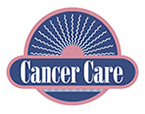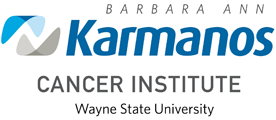
Cancer Care Associates of York
An APP-Physician Model Improves Risk Stratification and Palliative Care
Jia Conway, DNP, CRNP, AOCNP, Nurse Practitioner

With the understanding that patient education about palliative care is an important component of oncology care, this practice implemented an APP-Physician model to provide this education. Risk-stratification assessment tools establish baseline metrics related to deficits in the areas of nutrition, psychosocial, performance and mental status changes, skin breakdown, fall risks, incontinence risk, and treatment tolerance, as well as existing co-morbidities. Providers then use these outcome measurements to make patient-specific, safe treatment decisions about chemotherapy, immunotherapy, surgery, and/or radiation.
ACCCBuzz Blog Post: Early Palliative Care Program Proactively Meets Patient Needs
Cone Health Cancer Center
Implementing a Transportation Hub: A Holistic Approach to a Systemic Problem
Rachel Marquez, MPH, Director of Transportation Services

After data showed that individuals living in two ZIP codes had a 12% and 15% no-show rate, compared to the average of 2.9% across all ZIP codes, this cancer program implemented a screening tool to initiate transportation discussions with patients before “non-compliance” with treatment became an issue. A pilot program addressed identified patient needs using an online transportation platform. Overall no-show appointments decreased by 48% and no-show incidence from patients living in the two at-risk ZIP codes dropped to 1.2% and 1.3%, respectively.
ACCCBuzz Blog Post: Catch a Ride, Save a Life: Transportation Program Reduces No-Shows
Inova Schar Cancer Institute
Remote Monitoring of Patients with Cancer During COVID-19

The COVID-19 pandemic posed many new complications for cancer programs and practices across the United States. As COVID-19 cases increased in early 2020, and with the end of the pandemic nowhere in sight, it became apparent that patients with cancer needed to be able to continue their treatment in a safe environment that protects them and oncology staff from exposure to the virus.
ACCCBuzz Blog Post: Managing COVID+ Oncology Patients at Home During Treatment
Karmanos Cancer Institute/Wayne State University
The DISCO App: A Patient-Focused Tool to Reduce Financial Toxicity
Lauren M. Hamel, PhD, Assistant Professor, Department of Oncology

The DISCO (DIScussions of COst) app educates patients with cancer about potential treatment-related costs and generates tailored questions to prompt cost-related conversations with providers. In a pilot study, the app significantly improved patients’ self-efficacy for managing treatment costs and interacting with providers while decreasing cost-related distress. Most important, 100% of these video-recorded clinic visits included a cost discussion on topics ranging from patient co-pays to transportation.
ACCCBuzz Blog Post: Mobile App Eases Patient Cost-of-Care Conversations
Presbyterian Healthcare Services
Developing a Cancer Care and Community Paramedicine Partnership
Michele Goodman, RN, BSN, MBA, Vice President, Cancer Service Line
Scott A. Kasper, MS, Vice President & Chief, Albuquerque Ambulance Service

To reduce ED utilization and exposure to infectious disease, this pilot program identified symptoms that could be appropriately managed in a lower level of care setting—a patient’s home. A mobile integrated health team provided clinical interventions and wellness checks, such as hydration and labs, from the safety of the patients’ homes. Throughout 2020, the care team made 652 home visits to 169 patients with cancer.
ACCCBuzz Blog Post: Integrating Community Paramedics into the Cancer Care Team
University of Colorado Cancer Center, UCHealth-Oncology Services
3D Virtual Reality: Changing the Standard of Care for Patients with Cancer and Their Caregivers
Douglas Holt, MD, Chief Resident, Radiation Oncology

Virtual reality (VR) is uniquely positioned to improve patient understanding of cancer and its treatments. During clinical consultations, radiation oncology staff use a mobile VR cart to provide 3D patient-specific CT, MRI, and PET-CT imaging to enhance provider and patient interaction, improve patient education, and reduce patient distress. Hear results from a clinical study that captured both quantitative and qualitative data on patient acceptance and perceived usefulness of VR in cancer education and treatment.
ACCCBuzz Blog Post: Virtual Reality Brings Patient Education to Life
Vanderbilt University Medical Center, Vanderbilt Ingram Cancer Center
Oncology Capture of ED Patients with Incidental Radiologic Findings
Nicholas Garland, MS, Administrative Fellow
Katharine Klar, RN, BSN, Assistant Nurse Manager

Increased use of CT scans in emergency departments leads to higher rates of incidental radiologic findings, including adrenal masses and pulmonary lung nodules. In this “pull” model for follow-up care, ED providers use the EHR to prompt oncology nurse navigators and case managers to contact patients with incidental findings. Prompt follow-up allows for earlier diagnosis and treatment—improving care and the patient experience. From a business perspective, the cancer program realized financial gains through additional visits, procedures, surgeries, radiology scans, and/or lab.
ACCCBuzz Blog Post: Addressing ED Incidental Imaging Findings Through Navigation
| Access Date | Quiz Result | Score | Actions |
|---|
